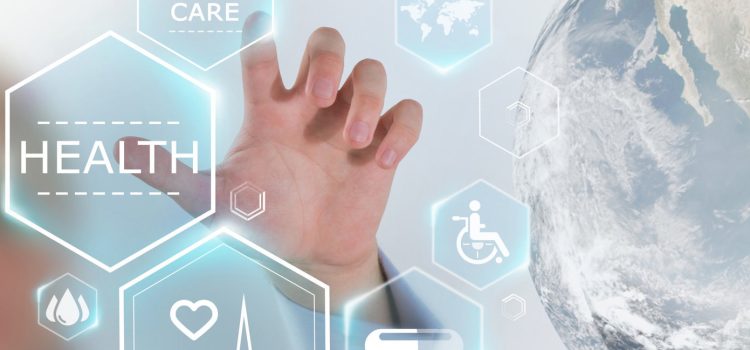
In an increasingly interconnected world, the future of global health security is a pressing concern that necessitates collective action and innovative solutions. The COVID-19 pandemic has underscored the vulnerabilities in our global health systems, highlighting the need for robust preparedness, rapid response mechanisms, and resilient healthcare infrastructure. This article delves into the multifaceted aspects of global health security, exploring the roles of technology, international cooperation, and policy-making in shaping a safer and healthier future for all.
The Role of Technology in Global Health Security

Technological advancements are at the forefront of transforming global health security. From early detection systems to advanced data analytics, technology is pivotal in identifying and mitigating health threats.
Early Detection and Surveillance
One of the key elements in preventing the spread of infectious diseases is early detection. Modern surveillance systems equipped with artificial intelligence (AI) and machine learning can analyze vast amounts of data to identify potential outbreaks before they escalate. For instance, AI algorithms can scan social media posts, news articles, and other online content to detect unusual patterns that may indicate the emergence of a new disease.
Telemedicine and Remote Healthcare
Telemedicine has emerged as a crucial tool in maintaining healthcare services during crises. It enables healthcare providers to offer consultations and follow-ups remotely, reducing the risk of disease transmission. Furthermore, telemedicine can bridge the gap in healthcare access for remote and underserved populations, ensuring that everyone receives timely medical attention.
Genomic Sequencing and Personalized Medicine
Genomic sequencing technology allows scientists to understand the genetic makeup of pathogens, facilitating the development of targeted treatments and vaccines. Personalized medicine, which tailors medical treatment to the individual characteristics of each patient, can significantly improve the efficacy of interventions and reduce adverse effects.
International Cooperation and Policy-Making
Global health security cannot be achieved in isolation. It requires the concerted efforts of governments, international organizations, and the private sector.
Strengthening Global Health Governance
International organizations such as the World Health Organization (WHO) play a critical role in coordinating global health responses. Strengthening these institutions and ensuring that they have the necessary resources and authority to act swiftly is essential. Additionally, transparent and timely sharing of information between countries can enhance collective preparedness and response.
Building Resilient Health Systems
Investing in resilient health systems is fundamental to global health security. This includes ensuring that healthcare facilities are adequately equipped, healthcare workers are well-trained, and supply chains for essential medicines and equipment are robust. Resilient health systems can better withstand the pressures of a health crisis and continue to provide essential services.
Policy and Regulatory Frameworks
Effective policy and regulatory frameworks are necessary to guide the global health security agenda. Policies should focus on promoting research and development, ensuring equitable access to healthcare, and addressing the social determinants of health. Regulatory frameworks must also be agile enough to adapt to emerging health threats and technological advancements.
Addressing Social Determinants of Health

Health security extends beyond the immediate response to health threats; it encompasses addressing the underlying social determinants that contribute to health disparities. Factors such as poverty, education, housing, and access to clean water and sanitation significantly impact health outcomes.
Promoting Health Equity
Health equity ensures that all individuals have the opportunity to attain their highest level of health. Efforts to promote health equity should focus on reducing disparities and ensuring that vulnerable populations receive the necessary support and resources. This includes targeted interventions in low-income and marginalized communities.
Enhancing Public Health Infrastructure
A robust public health infrastructure is the backbone of effective health security. This includes well-functioning laboratories, surveillance systems, and emergency response capabilities. Investing in public health infrastructure not only prepares us for future pandemics but also improves overall health outcomes.
The Importance of Public-Private Partnerships
Public-private partnerships (PPPs) are vital in advancing global health security. These collaborations leverage the strengths of both sectors to address complex health challenges.
Innovation and Research
The private sector, particularly pharmaceutical and biotechnology companies, plays a crucial role in innovation and research. PPPs can accelerate the development of new treatments, vaccines, and diagnostic tools. For example, the rapid development of COVID-19 vaccines was made possible through unprecedented collaboration between governments, academia, and private companies.
Funding and Resource Mobilization
PPPs can also mobilize funding and resources for global health initiatives. Private sector investment can complement public funding, ensuring that sufficient resources are available for research, infrastructure development, and emergency response.
Preparing for Future Health Threats
The future of global health security hinges on our ability to anticipate and prepare for emerging health threats. This requires a proactive and forward-thinking approach.
One Health Approach
The One Health approach recognizes the interconnectedness of human, animal, and environmental health. By adopting a holistic perspective, we can better understand and address the root causes of health threats, such as zoonotic diseases that originate in animals and spill over to humans.
Climate Change and Health
Climate change is an emerging threat to global health security. Changes in temperature, precipitation patterns, and extreme weather events can influence the spread of infectious diseases, impact food and water security, and exacerbate health inequalities. Addressing climate change is therefore integral to safeguarding global health.
Continuous Learning and Adaptation
Continuous learning and adaptation are essential to staying ahead of health threats. This involves regular review and updating of health security strategies, incorporating lessons learned from past experiences, and fostering a culture of innovation and flexibility.
Conclusion
The future of global health security is a complex and multifaceted challenge that requires a coordinated and comprehensive approach. By leveraging technology, strengthening international cooperation, addressing social determinants of health, fostering public-private partnerships, and preparing for future threats, we can build a resilient and equitable global health system. The lessons learned from the COVID-19 pandemic must serve as a catalyst for action, driving us towards a safer and healthier future for all.










